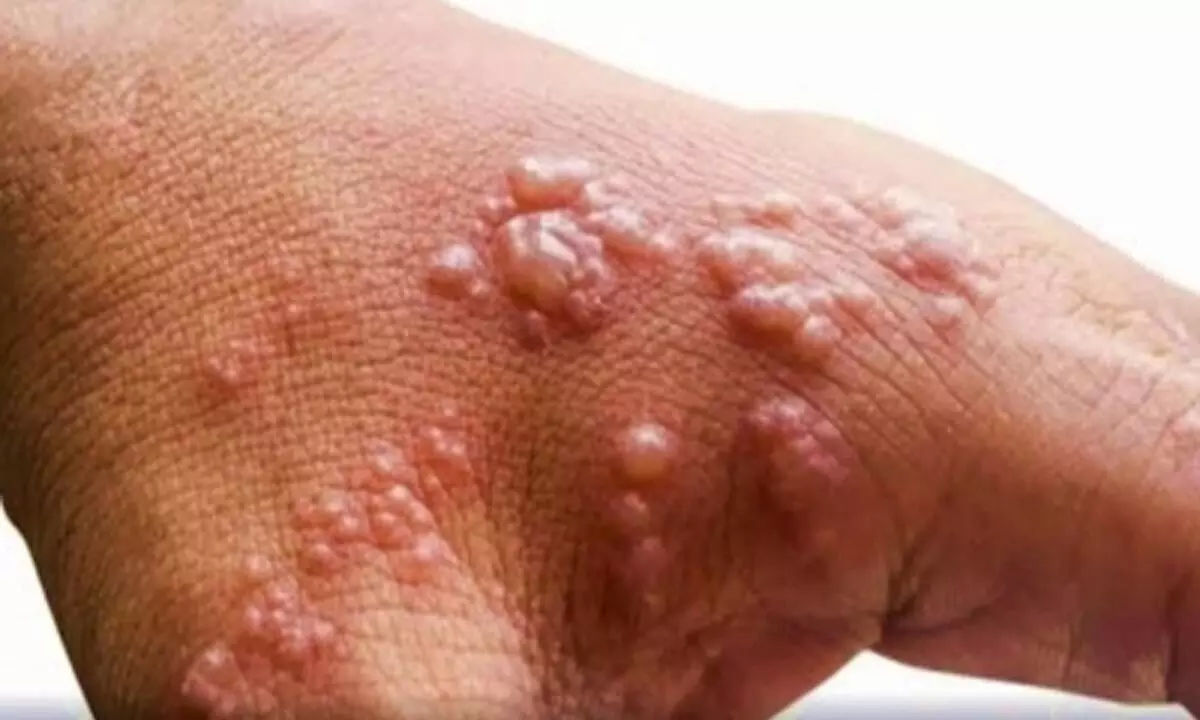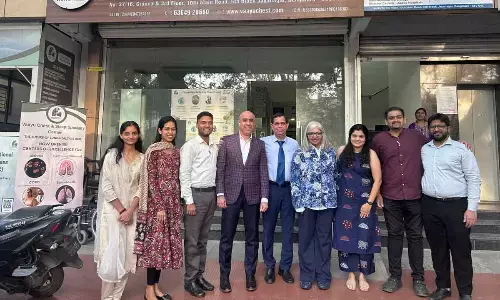Study reveals safety, efficacy of tecovirimat in treating monkeypox

For representational purpose
The antiviral tecovirimat appears to be safe and effective for the treatment of monkeypox symptoms and skin lesions, finds a new study.
New York: The antiviral tecovirimat appears to be safe and effective for the treatment of monkeypox symptoms and skin lesions, finds a new study.
Tecovirimat (TPOXX) is an FDA-approved antiviral drug for the treatment of smallpox. It limits viral spread in the body by inhibiting the work of the protein involved in releasing the enveloped virus.
"We have very limited clinical data on the use of tecovirimat for monkeypox infection. There is much to learn about the natural progression of the disease and how tecovirimat and other antivirals may affect it," said lead author Angel Desai from the University of California, Davis.
The recent global outbreak of monkeypox has led to more than 45,500 cases as of August 22, 2022. While symptoms usually resolve on their own in 2-4 weeks, a recent study showed that 13 per cent of patients needed hospitalisation.
For the new study, published in the journal JAMA, the team included 25 patients with monkeypox who were given tecovirimat therapy.
Patients with skin lesions in multiple body parts or in sensitive areas such as the face or genital region were offered oral tecovirimat treatment. The treatment was weight-based, given every 8 or 12 hours, and was taken within 30 minutes of a high-fat meal.
In total, 25 patients with confirmed monkeypox infection completed a course of tecovirimat therapy. All were male. Their age ranged between 27 and 76 years (the median age was 40). Nine patients had HIV.
Only one patient had the smallpox vaccine (taken more than 25 years ago) and four others received a dose of JYNNEOS vaccination after symptoms started.
The study found that 92 per cent of patients had lesions in their genital or anal area. While all patients had painful lesions, around half had fewer than 10 lesions over their entire body.
On average, the patients had symptoms or lesions for 12 days before they started their antiviral treatment.
Fever was the most common symptom (76 per cent of the patients), followed by fatigue (32 per cent), sore throat (20 per cent) and chills (20 per cent). Other symptoms included backache (12 per cent), muscle pain (8 per cent), nausea (4 per cent) and diarrhea (4 per cent).
All patients completed the tecovirimat therapy and tolerated their treatment well. They were treated for two weeks, except for one patient who was treated for 21 days.
On day 7 of therapy, 40 per cent of patients had healed from their lesions. By day 21, 92 per cent had healed and were pain-free.









